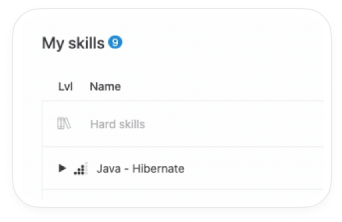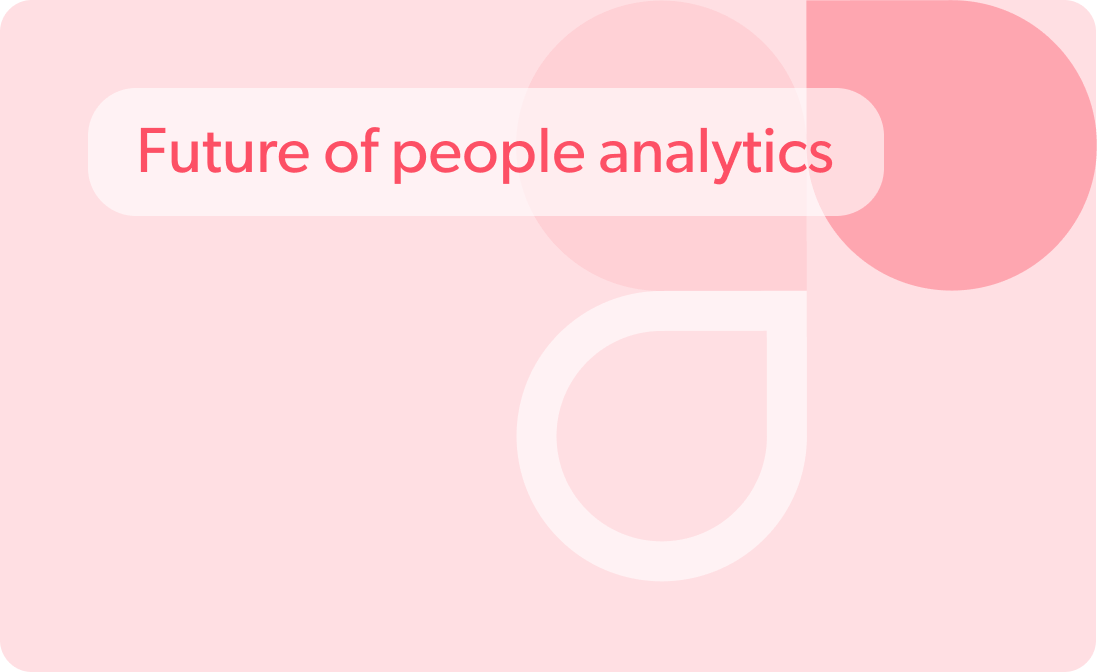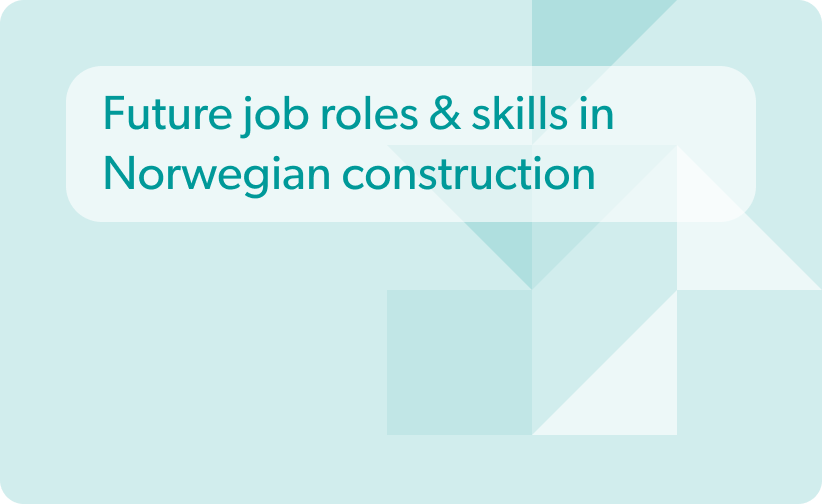How will the metaverse impact HR?
– Why did the HR manager join the metaverse?
– Because they wanted to “virtually” hire and “pixel-perfectly” onboard top talent!
In a labor market that is becoming increasingly technological, we are seeing the emergence of new tools and functions that promise to facilitate business and workplace processes in the corporate world. We’re sure most of you have already tried to collaborate with ChatGPT and Midjourney, and you might gain interest in the metaverse. So let’s talk about it.
As the metaverse continues to gain momentum, many industries are beginning to explore the potential impact of this new virtual space, including HR. For example, metaverse and HR can cooperate in new hiring, learning, and onboarding. Follow for more insights on how metaverse can affect HR and what advantages and disadvantages it can bring to HR managers.
What are the metaverse and HR opportunities in the organization?
Microsoft, in 2021, announced plans to combine its virtual and augmented reality (VR/AR) platform Mesh with Teams and suggested it could create immersive spaces within the messaging app in the future. In addition, Meta developed Horizon Workrooms, which allows users to hold meetings using Oculus headsets, which is a big step for HR in the metaverse.
Research conducted by PwC in 2022 found that VR-trained employees had four times higher confidence, 3.75 times higher retention rate, and completed training four times faster than traditional methods. It highlights the potential effectiveness of immersive training in improving learning outcomes.
The concept of the metaverse in the context of HR refers to integrating VR, AR, and other immersive technologies into HR practices and processes. It envisions a virtual environment where individuals can interact, work, and collaborate in a digital space.
There are already some signs that employees and employers will be sympathetic to the metaverse
A survey of 1,500 employees and 1,500 employers in the US by ExpressVPN shows that nearly 3 in 5 employees and 4 in 5 employers are interested in workforce immersion. Moreover, 66% of employers are excited about the metaverse, and 46% of employees share the same excitement.
Some big companies are already investing in and exploring the potential of the metaverse. For example, Accenture bought 60,000 Oculus VR training headsets in 2021, Fidelity Investments hosted an event in the metaverse in 2022, and KPMG created an innovation center in virtual reality, allowing its partners to experience the metaverse firsthand.
Unlock the power of data-driven recruiting
Step up your recruitment game with data-driven strategies and gain actionable insights and expert tips on implementing a data-driven recruiting process. From defining data strategies to overcoming challenges, empower your HR team to leverage data effectively.
Metaverse and HR integration benefits
“It’s my job to stay ahead of the latest trends in the workplace — and the metaverse is no exception. I know it’s going to have a big impact on HR.” — Michelle Hague is the HR manager at Solar Panels Network USA in Denver.
Here are a few reasons why HR specialists have started talking about the metaverse:
- Remote work and collaboration. The metaverse offers a potential solution by providing immersive and interactive virtual environments that simulate physical interactions, enabling remote teams to collaborate more effectively and feel a greater sense of presence and connection.
- Talent acquisition and onboarding. Onboarding experiences can be enhanced through immersive simulations and interactive training modules that help new employees better understand the company’s systems, policies, and procedures. Organizations can use VR platforms within the metaverse to showcase their work environments, culture, and values to potential candidates.
- Employee engagement and well-being. Engaging and supporting employees in a remote or hybrid work environment can be challenging. HR in the metaverse will be able to create virtual social spaces and experiences that foster employee engagement, connection, and well-being. It allows employees to gather virtually, attend virtual events, participate in team-building activities, and access mental health resources.
- Learning and development. The metaverse has the potential to revolutionize learning and development initiatives. By leveraging VR and immersive technologies, companies can create realistic and interactive training simulations, enabling employees to acquire new skills and knowledge more engagingly and memorably. Virtual classrooms and conferences within the metaverse can also facilitate continuous learning and professional networking.
- Future of work and digital transformation. As technology continues to evolve, the nature of work is likely to change significantly. The metaverse represents a potential future where work, communication, and commerce are seamlessly integrated into virtual environments. The metaverse and HR cooperation include exploring the implications of this shift, including how it may impact organizational structures, employee roles, and the overall employee experience.
Metaverse is still evolving, and its practical implementation is in its early stages. However, its potential to reshape various aspects of work and employee experiences has generated considerable interest and discussion, including within the HR community.
Metaverse and HR challenges
While a metaverse environment can offer numerous advantages for organizations, there are also several limitations of HR in the metaverse to consider:
- Technical challenges. Implementing a metaverse environment requires advanced technological expertise, which can be expensive and time-consuming. Additionally, technical connectivity, bandwidth limitations, and latency can impact the user experience.
- Accessibility concerns. Not all employees may have the hardware or software to access the metaverse environment, which may restrict its use and effectiveness.
- Security and privacy risks. The metaverse environment can threaten security and privacy, particularly if sensitive data is shared or stored in the virtual workspace. Organizations should prioritize robust security protocols to safeguard their data and systems. Integrating metaverse and HR will require systems that delineate personal and professional identity. Employers should be fully transparent about the collected data, how the company will use it, and the impact on an employee’s professional development.
- Limited applicability. Of course, employees can’t effectively perform all types of work in a virtual environment. Specific industries or roles may require a physical presence or specialized equipment, making it challenging to implement a metaverse environment for these workers.
- Cultural resistance. Some employees or managers may resist virtual work, preferring a physical office’s familiarity and social interaction.
By recognizing and addressing these limitations, organizations can make informed decisions regarding integrating the metaverse into their HR practices.
HR in the metaverse use cases
HR in the metaverse presents a range of innovative use cases that can transform various aspects of human resources management. Below, we share some possible use cases in the metaverse that can be handy.
Recruiting
HR in the metaverse has the potential to revolutionize the recruiting process, leveraging immersive technologies to enhance candidate experiences and improve hiring outcomes. Through virtual and augmented reality, candidates can immerse themselves in interactive job previews, gaining a deeper understanding of the role and evaluating their fit with greater clarity.
Virtual reality facilitates virtual interviews and assessments, enabling a more inclusive and comprehensive recruitment process that identifies the most qualified candidates.
By leveraging the metaverse, organizations can make a lasting and positive first impression, fostering a sense of connection and reducing the potential isolation experienced by remote workers. In addition, these innovative approaches blend HR and the metaverse, transforming how talent is attracted and selected.
Onboarding
The HR and metaverse integration enable new hires to interact uniquely with key team members and departments. For example, virtual training programs can provide an interactive office tour instead of relying solely on traditional methods, such as lengthy orientation sessions or paperwork.
Virtual introductions can be facilitated through interactive avatars, allowing new employees to virtually meet their colleagues, ask questions, and establish early connections. These interactions in a simulated environment contribute to a sense of belonging and help foster a strong team dynamic, even if the new hires are physically remote.
By creating virtual scenarios that closely mimic real-world situations, individuals can familiarize themselves with their job responsibilities and gain confidence before engaging in actual work. This approach enhances the learning experience and empowers new hires to hit the ground running, regardless of their physical location.
Performance management
By integrating HR in the metaverse, companies can leverage advanced technologies to provide more accurate, objective, and data-driven employee performance assessments.
Moreover, the metaverse offers the possibility of creating realistic simulations to measure employee skills and knowledge in a virtual environment. These simulations provide a controlled, standardized setting where individuals can demonstrate their capabilities and competencies. As a result, organizations can accurately assess employees’ performance and identify specific improvement areas by replicating real-world scenarios. Companies can use this information to provide targeted training and development opportunities, enabling employees to enhance their skills and excel in their roles.
Succession planning
Succession planning is crucial in ensuring organizational continuity and identifying future leaders. Integrating HR in the metaverse organizations provides innovative approaches to assess high-potential employees and nurture their leadership skills. In addition, the metaverse facilitates knowledge transfer between employees, especially during transitions such as retirements or departures, by storing and sharing experiences engagingly and interactively.
Metaverse in HR serves as a knowledge repository, preserving experienced employees’ expertise and facilitating its transfer engagingly and interactively.
While you are thinking about whether you need metaverse in HR or not, let’s summarize
- The integration of the metaverse into HR practices offers numerous benefits and opportunities. These include remote work and collaboration, talent acquisition and onboarding, employee engagement and well-being, learning, and development, and the future of work and digital transformation.
- Combining the metaverse and HR can enhance recruiting, onboarding, and talent management by leveraging immersive technologies like virtual and augmented reality to provide interactive job previews, assessments, and a more inclusive and comprehensive learning experience.
- While the metaverse offers significant opportunities, there are also challenges to consider. These include technical challenges, accessibility concerns, security and privacy risks, limited applicability for certain types of work, and potential cultural resistance to virtual work.
- However, if you still want to try the metaverse in HR, your teams will need to identify critical use cases that make sense for their organizations and employees and address the limitations and challenges associated with their implementation.
Stay up to date with our newsletter
Every month, we’ll send you a curated newsletter with our updates and the latest industry news.































 info@hrforecast.de
info@hrforecast.de
 +49 89 215384810
+49 89 215384810






